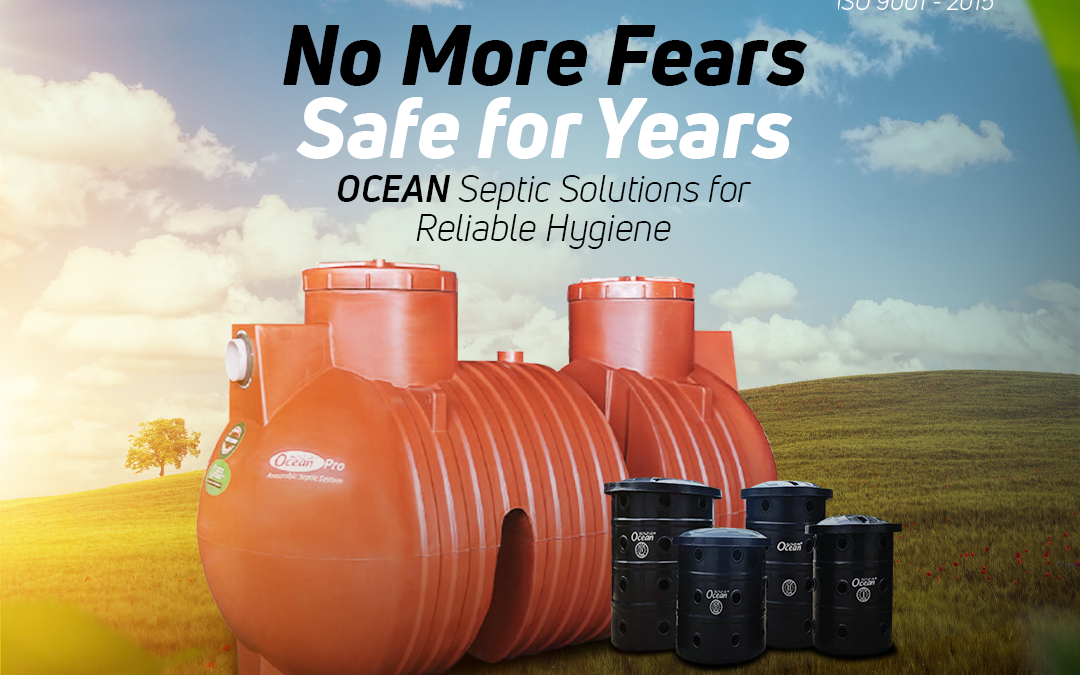When choosing a septic tank material, we often weigh the pros and cons of different options. Professional builders and contractors consider fiberglass, concrete, and plastic to find the best fit. Each has its benefits, but if you’re looking for an affordable, lightweight, and versatile solution, PVC septic tanks stand out as the best choice. Below, we’ll dive into the advantages of each material and explain why plastic septic tanks might be the smartest option for your needs.
Understanding Septic Tank Materials
Concrete Septic Tanks
Concrete is a long-standing favourite due to its durability and ability to handle heavy loads. However, its hefty weight (if readymade) requires special equipment for installation, leading to higher costs. On spot construction s also costly. While concrete can withstand soil movement better than other materials, this option may not be practical for all budgets or locations.
Fiberglass Septic Tanks
Fiberglass offers good resistance to corrosion, making it a decent choice in areas with high water tables. However, it is not as strong as concrete and can suffer damage if mishandled during installation.
Plastic Septic Tanks
PVC tanks, made from plastic, are lightweight, cost-effective, and easy to install. They offer flexibility in various soil conditions and are less prone to cracking, making them an increasingly popular choice for homeowners.
Why Choose a PVC Septic Tank?
Easy and Affordable Installation
One of the biggest advantages of plastic tanks are its lightweight design. Unlike concrete tanks that require heavy machinery, PVC tanks can be installed with minimal equipment, reducing installation costs.
Durable and Reliable in Many Conditions
PVC tanks are highly resistant to corrosion and can last for decades when properly maintained. While they may not match concrete’s ability to handle extreme soil movement, their durability is more than sufficient for most residential properties.
Environment Friendly
Plastic tanks are designed to minimize leakage, protecting groundwater from contamination. This makes them an excellent option for homeowners who prioritize environmental responsibili
Flexibility in Soil Conditions
In areas where soil shifting is minimal, PVC tanks perform exceptionally well. They adapt to varying conditions without compromising their structural integrity.
Cost-Effective Maintenance
Over time, maintenance and repair costs for PVC tanks tend to be lower compared to fiberglass or concrete alternatives. Their design makes inspections and minor repairs straightforward and affordable.
Things to Keep in Mind When Choosing a Septic Tank
When deciding on the right septic tank for your property, keep these key factors in mind:
Soil Conditions: If your soil is prone to heavy shifting, consider consulting an expert to ensure a PVC tank will suit your needs.
Local Regulations: Always check with local authorities for any restrictions or guidelines on septic tank materials.
Budget and Installation: PVC tanks shine here, with lower upfront costs and easier installation compared to concrete or fiberglass.
Lifespan Expectations: While concrete may last longer, the affordability and ease of PVC make it a practical option for many homeowners.
Choosing the right septic tank material can feel overwhelming, but PVC septic tanks strike the perfect balance of affordability, durability, and convenience. With simple installation, reliable performance, and low maintenance costs, it’s an excellent choice for modern homeowners.
